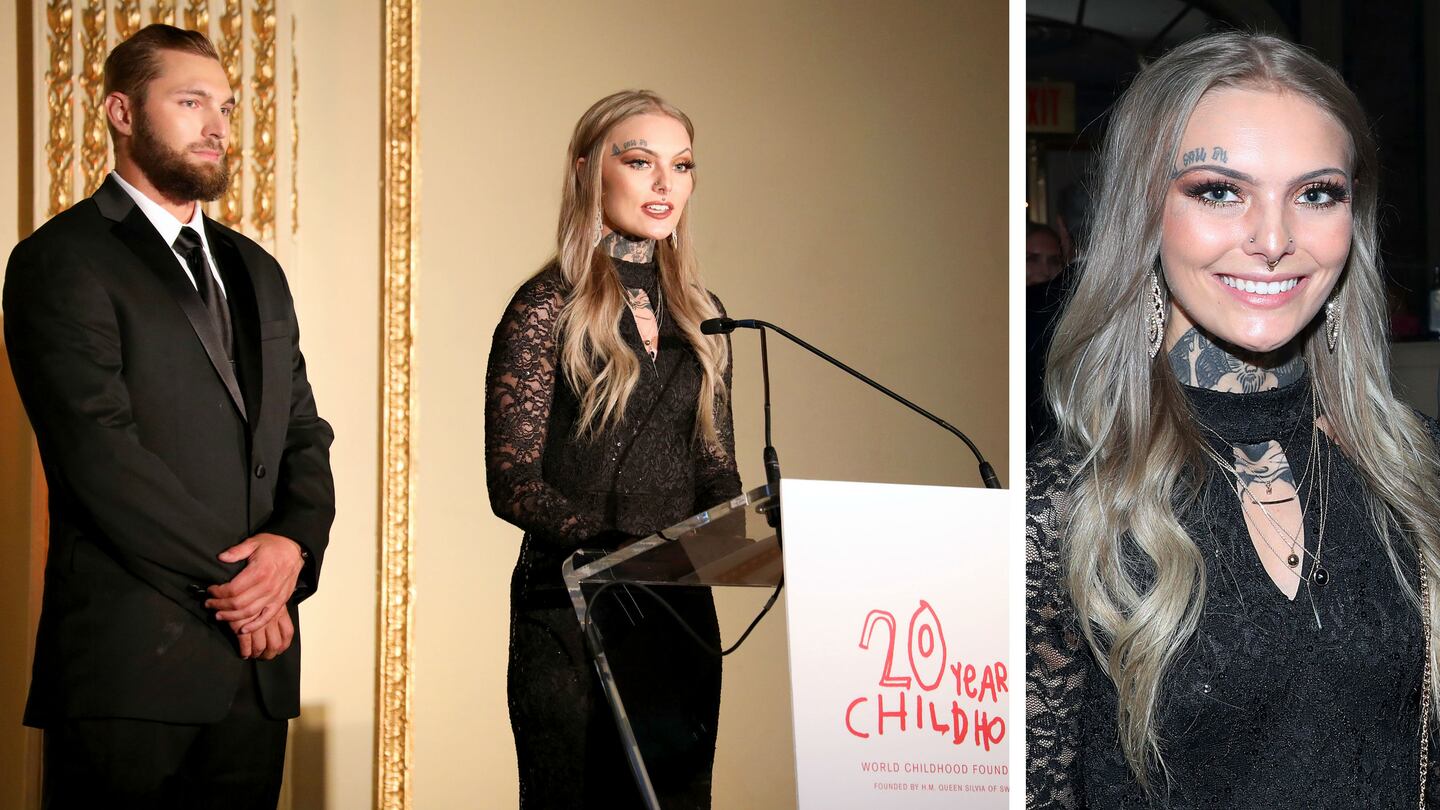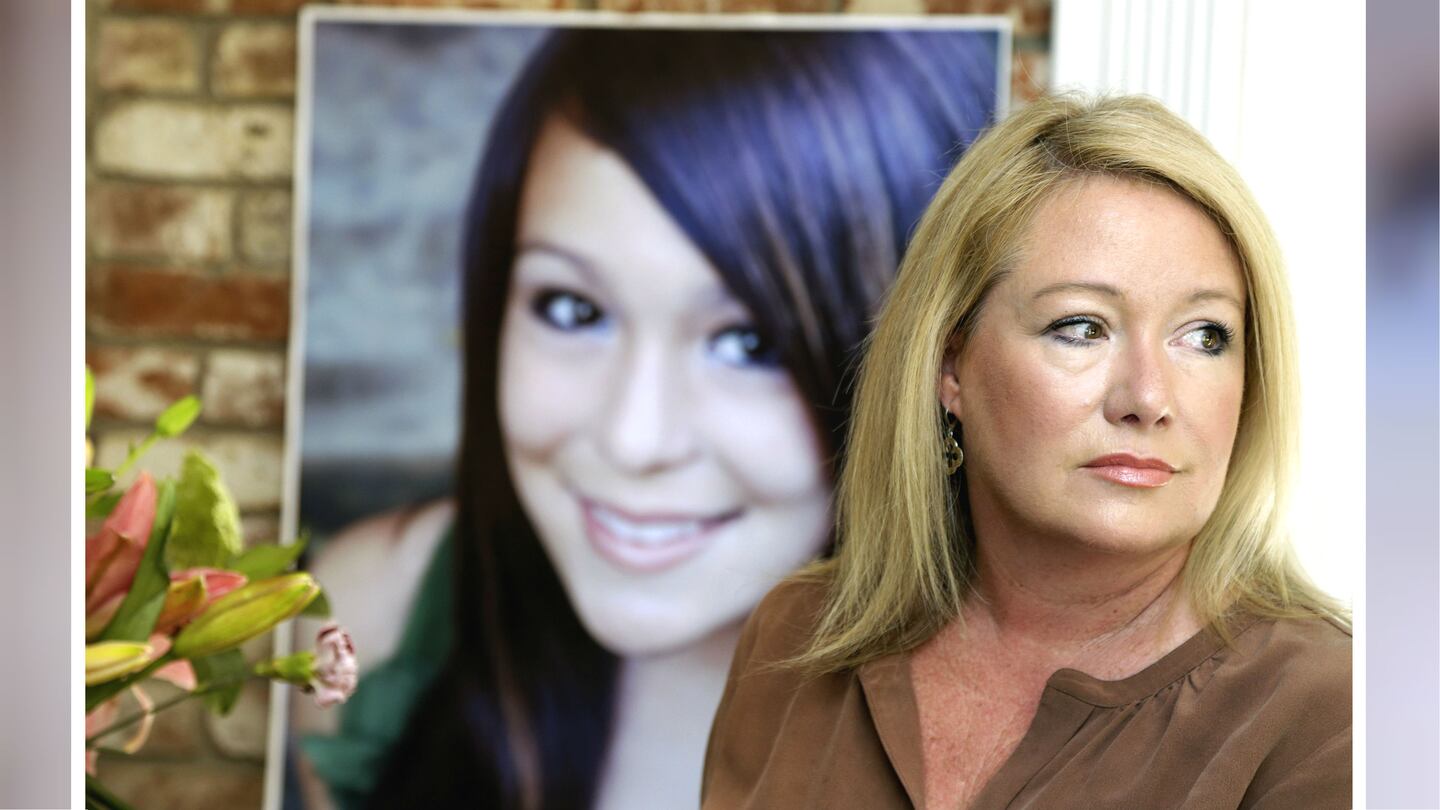DENVER — Daisy Coleman, one of two teen rape victims portrayed in the Netflix documentary “Audrie & Daisy,” died by suicide Tuesday. Coleman was 23 years old.
Coleman’s foundation, SafeBAE (Safe Before Anyone Else), confirmed her death Tuesday in a statement on Facebook, as did her mother, Melinda Moeller Coleman.
“She was my best friend and amazing daughter,” Moeller Coleman wrote in a post. “I think she had to make it seem like I could live without her. I can’t.
“I wish I could have taken the pain from her! She never recovered from what those boys did to her and it’s just not fair. My baby girl is gone.”
Coleman’s brother, Charlie Coleman, said he was at a loss for words.
“You have no idea how much you truly meant to everyone around you,” he wrote of his sister. “I just wish I could have been there. This doesn’t even seem real and probably won’t for a really long time. I love you, baby sis.”
Daisy is the second child Moeller Coleman loses in just over two years. Her son and Daisy’s brother, Tristan Coleman, died in a June 2018 car crash at age 19.
The siblings lost their father in a crash when they were young.
Daisy Coleman on Monday sought someone to rent her apartment for a month so she could return home to Missouri to clear her head.
“A lot of bad things are happening in my life right now and I feel like being away from it all is going to help me make a game plan so I can be out here and be safe,” Coleman wrote on Facebook.
“As many of you know, she’s struggled with healing for many years and had been making incredible progress, but healing is never a straight path and can often have setbacks,” SafeBAE’s statement read. “But she would want you all to know how much she loved this work and all of you who have joined us in it.
“Nothing inspired her more than knowing that she could help other survivors and work to prevent sexual violence.”
In a second statement released Wednesday, the group described Coleman as the driving force behind their work.
“We were not just a non-profit team, but a family. We are shattered and shocked by her passing from suicide,” the statement read.
Audrie Pott, the second subject of the acclaimed Netflix documentary, took her own life in 2012, just eight days after she was sexually assaulted. She was 15.
Pott’s parents, through the Audrie Pott Foundation, wrote that they were “profoundly sad” to learn of Coleman’s suicide.
“She was a beautiful and brave person who unselfishly helped others,” the Potts said in a statement. “Her mother, Melinda, said that she never recovered from her rape at just 14 years old and that the boys involved ‘killed my daughter by what they did to her. Audrie and Daisy would both be alive today if those boys were held accountable.‘
“Our warmest love and prayers go out to the Coleman family in the wake of this tragedy.”
“Audrie & Daisy” is described as “an urgent real-life drama that examines the ripple effects on families, friends, schools and communities when two underage young women find that sexual crimes against them have been caught on camera.” The film, which premiered at the 2016 Sundance Film Festival, “takes a hard look at America’s teenagers who are coming of age in this new world of social media bullying, spun wildly out of control,” according to Netflix.
Netflix bought the documentary later that year.
Watch the trailer for “Audrie & Daisy” below.
Rolling Stone reported that Coleman, who lived with her family in the small town of Maryville, Missouri, snuck out with a friend the night of Jan. 8, 2012, to go to a party, where both girls were sexually assaulted by some older boys. Her friend was just 13.
The rape, which took place while Coleman was drunk and unconscious, was filmed by one of the boys and the footage was allegedly shared with classmates, the magazine reported. The recording, which was reportedly deleted, was never found by police.
Moeller Coleman found her intoxicated and incoherent daughter dumped on their front lawn the following morning, in below-freezing temperatures and without a coat. She said in the documentary that her daughter’s hair was frozen to the ground.
In 2014, Charlie Coleman described that moment. He had been friends with some of the boys who assaulted his sister.
“The dogs started barking, which woke mom up, and my youngest brother. And they went to the door, and she was coming toward the porch,” Charlie Coleman told ABC News. “And then I was woken up to, ‘Charlie, there’s something wrong,’ and that’s when I got out of bed and came upstairs.
“And that’s probably when my life changed.”
Moeller Coleman put her daughter in a hot bath to warm her up, at which point she noted the bruises on the teen’s body. Daisy Coleman also began complaining of pain, her brother said.
“I told Mom, ‘Well, call the police. Call the police if something’s hurting, because that’s not right,’” he said. “I had this horrible feeling.”
“Audrie & Daisy” goes into the aftermath of Coleman’s assault at the hands of then-17-year-old Matthew Barnett, who claimed the sex was consensual. Barnett was from a prominent family; his grandfather was a former state representative.
Other boys who were allegedly involved in the incident were never charged.
Both Daisy and Charlie Coleman suffered harassment in the aftermath, including cyberbullying. According to Rolling Stone, Moeller Coleman lost her job as a veterinarian and the family’s home was set on fire.
Daisy Coleman dropped out of school, and the family eventually moved out of Maryville.
No sexual assault charges were ever brought against Barnett, who pleaded guilty in January 2014 to misdemeanor child endangerment. According to Time, the charge involved providing Daisy Coleman with vodka and then leaving her outside her house when she “was incapable of protecting or caring for herself,” prosecutors said.
Rolling Stone reported that he was sentenced to two years of probation and a four-month suspended jail sentence.
Watch ABC News’s report on Barnett’s guilty plea below.
“Today, I am grateful that the defendant took responsibility by pleading guilty to the charges. I am ready to move forward,” Daisy Coleman, then 16, said in a statement following Barnett’s sentencing. “To all those who supported me, I promise that what happened on January 8, 2012, will not define me forever.”
Coleman’s mother and brother told ABC News the day after the sentencing hearing that the teen was hospitalized at that time following a suicide attempt. It was one of at least three attempts in the aftermath of the sexual assault, Rolling Stone said.
Bonni Cohen and Jon Shenk, the husband and wife filmmakers who made “Audrie & Daisy in 2016, told the magazine it was difficult to gain Daisy Coleman’s trust.
“We had moments where we showed up in Missouri and (Daisy) wouldn’t come out of her bedroom, and we’d sit in the production van waiting for her for a day,” Cohen said. “It was not always easy to gain her trust and her cooperation, but over time, I think she came to see the process of the filmmaking as part of her recovery.”
Daisy Coleman used her artistic skills to help depict her sexual assault, Rolling Stone said. She worked with an animator to turn her sketches into the narrative of what happened to her.
“I think she felt really empowered by that, that her art was going to speak her truth,” Cohen said.
Daisy Coleman, who became a tattoo artist, used her experience to co-found SafeBAE, which is described on its website as “a survivor-founded, student-led national organization whose mission is to end sexual assault among middle and high school students.”
“As the only national peer-to-peer organization of our kind, we help promote culture change by giving teens the tools to become activists and shift school culture through raising awareness about dating violence, sexual harassment and assault, affirmative consent, safe bystander intervention, survivor care, and their rights under Title IX,” the website states.
Charlie Coleman is also a co-founder of the organization.
Over the years, Daisy Coleman was befriended by strangers, fellow sex assault victims, attempted suicide survivors and celebrities. Amanda Knox, the American woman who was infamously spent nearly four years in an Italian prison before being exonerated of the 2007 murder of her roommate and fellow exchange student, Meridith Kercher, mourned Coleman’s death on Twitter.
“I’m devastated to learn of the recent death of Daisy Coleman, one of the founders of @safe_bae,” Knox tweeted. “She was so kind & thoughtful, even as the mob sought to erase her after her assault. She imprinted herself on me, literally, tattooing this semi-colon on my hand.”
The semi-colon has in recent years become a symbol of survival and a means of raising awareness for suicide prevention.
I'm devastated to learn of the recent death of Daisy Coleman, one of the founders of @safe_bae. She was so kind & thoughtful, even as the mob sought to erase her after her assault. She imprinted herself on me, literally, tattooing this semi-colon on my hand. pic.twitter.com/Svtyj5bDau
— Amanda Knox (@amandaknox) August 5, 2020
Knox also sat down with Coleman in 2018 on The Scarlet Letter Reports to discuss how she coped with her sexual assault.
The documentary also details the September 2012 case of Pott, who was unconscious at a party in Saratoga, California, when three older boys drew obscene messages on her body, penetrated her with their fingers and took photos. According to Rolling Stone, they then shared the photos with friends.
The 15-year-old, confused as to what happened to her, begged classmates to tell her what happened and who took the photos. Humiliated, the Saratoga High School sophomore hanged herself.
Three teen boys ultimately admitted to the sexual assault, The Mercury News reported in 2014. Two of the boys served 30 days in juvenile detention, on weekends, the newspaper said.
A third boy served 45 days. All three were prosecuted through the juvenile justice system.
Two of the boys apologized to Pott’s family the following year during a court hearing in the wrongful death lawsuit her parents filed against them, the News reported. Potts’ parents settled separately with the third boy.
“I wish Audrie was still here, and I miss her a lot,” one of the boys, then an 18-year-old senior at Saratoga High School, said during the hearing. “She was a great person who didn’t deserve anything that happened to her due to my actions. I apologize. I wish I could make it right.”
Thinking of Audrie Pott today on her 20th birthday. Forever in our hearts ❤️ #ForAudrie pic.twitter.com/yVPeSDSt33
— PAVE (@PAVEinfo) May 27, 2017
Besides the $950,000 financial settlement, the boys were also required to give at least 10 presentations at high schools or youth groups about the dangers of sexting, sending nude photos and “slut-shaming,” the News reported.
Shenk, the filmmaker, told Rolling Stone that another stipulation in the settlement required the boys to do a 45-minute interview for “Audrie & Daisy.”
“Our reaction was complete shock,” Shenk said. “As you can imagine, from a journalist’s point of view, to suddenly have your process involved in the punishment of the crime, it was very odd.”
The filmmakers, who had teens of their own at the time, ultimately decided to use the interview in the film. Cohen described the boys, who were preparing to head to college, as “totally broken” by their crimes and the result – Pott’s suicide.
“The combination of wanting to both cry and reach out to strangle them had to be suppressed in order to do the interview with journalistic and ethical consideration,” Cohen said. “So, we had to swallow hard.
“We just completely fell apart after the interview was over.”
If you or someone you know is struggling with suicidal thoughts, call the National Suicide Prevention Lifeline, which is available 24/7, at 1-800-273-8255. Sex assault survivors and advocates who are struggling can reach the National Sexual Assault Hotline at 800-656-HOPE (4673) and online at online.rainn.org.
Cox Media Group










